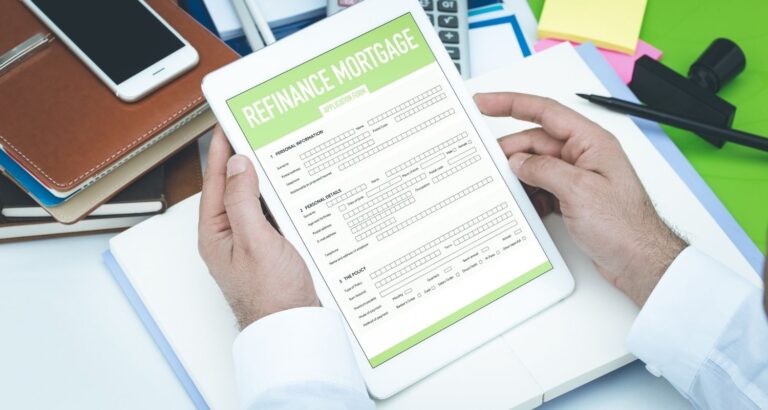When a mortgage term ends, homeowners face a choice: renew their existing mortgage or refinance it. Renewing a mortgage means continuing with the current loan, often at a new interest rate and term, while refinancing replaces the original mortgage with a new one, which can happen at any time. This decision depends on financial goals, current interest rates, and whether accessing home equity is a priority.
Renewal is a straightforward option often chosen for convenience and to avoid extra costs. Refinancing, on the other hand, offers flexibility such as consolidating debt or funding renovations but may involve penalties and additional fees. Understanding these differences is essential for making a financially sound decision.
Understanding Refinance Mortgage and Renewal Mortgage
Refinancing and renewing a mortgage are two distinct processes that homeowners use to manage their loans. A Refinance Mortgage allows borrowers to change interest rates, loan terms, or access equity by replacing their existing mortgage with a new one. Renewal, on the other hand, typically involves extending the loan with the same lender under updated terms. Understanding their differences and the conditions involved helps homeowners choose the best strategy for their financial goals.
Core Differences Between Refinancing and Renewal
Renewing a mortgage means continuing the existing loan by agreeing to a new term when the current one expires. It usually involves the same lender and similar terms, with minimal fees or paperwork. Renewal typically happens at the end of the mortgage term.
Refinancing replaces the current mortgage with a new loan, often with a different lender, interest rate, or term. This can occur anytime during the mortgage term and may involve paying penalties for breaking the original contract. Refinancing can help secure lower rates, change amortization periods, or access home equity.
When to Choose Refinance vs Renewal
A borrower may choose renewal for convenience and lower costs since it requires less paperwork and no penalties. It suits those satisfied with their mortgage terms but wanting to lock in a rate for a new term.
Refinancing is beneficial for those seeking better rates, adjusting loan length, or borrowing against home equity. However, it involves careful calculation to ensure savings exceed any penalties or fees. Refinancing often requires professional advice to assess long-term financial impact.
Key Terms and Conditions
Mortgage renewal generally includes terms similar to the expired agreement, with the interest rate reflecting current market conditions. Renewal usually has no or low fees, and the borrower’s credit status is less scrutinized.
Refinancing terms can vary widely, including new interest rates, loan amounts, payment schedules, and possible penalties. It often requires a credit check, home appraisal, and closing costs. Borrowers might also adjust amortization length or consolidate debts into a new mortgage.
Steps and Considerations for Mortgage Refinancing and Renewal
When deciding to refinance or renew a mortgage, specific criteria, lender comparisons, and cost evaluations must be carefully reviewed. These aspects determine eligibility and impact the financial benefits and obligations involved.
Eligibility Criteria and Documentation
Eligibility for refinancing or renewing a mortgage depends on income stability, credit score, and property value. Lenders require proof of income, employment verification, and recent credit reports. For refinancing, debt-to-income ratio limits are stricter because of the new loan approval process.
Documentation typically includes:
- Recent pay stubs or tax returns
- Property appraisal or valuation
- Current mortgage statements
- Identification and address verification
Renewals usually do not require full documentation unless the lender needs updated information or the borrower requests changes. Preparing these documents in advance helps streamline the process.
Comparing Lenders and Mortgage Rates
Borrowers should compare offers from multiple lenders, including their current one. Refinancing allows switching lenders, while renewal usually involves negotiating with the existing lender.
Key comparison points include:
| Factor | Importance |
| Interest rate | Directly affects monthly payments |
| Loan term | Influences total interest paid |
| Penalties or fees | Early repayment or break fees |
| Customer service | Support during and after closing |
Rate comparisons should reflect whether the loan is fixed or variable and consider introductory or promotional rates. Brokers can assist in accessing better offers and understanding terms.
Costs, Fees, and Potential Savings
Refinancing involves upfront costs such as appraisal fees, legal fees, and sometimes prepayment penalties for breaking an existing mortgage. Renewal fees are typically lower or non-existent but may involve slight adjustments in interest rates.
Borrowers should calculate:
- Closing costs on refinancing
- Potential penalty charges for early repayment
- Long-term savings from lower interest rates
- Changes in monthly payments and total interest over the loan term
A clear financial analysis helps determine if refinancing or renewing is more advantageous given current market conditions and personal financial goals.


